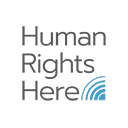[Report] PhD Training for 3rd and 4th Year PhD Students 2024
Published 17 April 2024By Seniha Irem Akin and Naomi van de Pol

NNHRR – PhD Training
11 April 2024, Rotterdam
Introduction
On the 11th of April 2024, the annual NNHRR PhD training for the third and fourth-year PhD students took place in Erasmus University Rotterdam. Alberto Quintavalla and Stephanie Triefus opened up the PhD training.
Future career
In the first session, Isabel Ebert and Sarah-Jane Koulen gave insights into the transition from a PhD to working in a human rights organisation or policy institutes. They emphasised that when applying for a new position, you should highlight some valuable skills you have acquired during your PhD, such as teaching experience, time-management, data analysis and empirical research skills. However, they also stress the importance of a shift in perspective when joining an organisation outside of academia. This requires you to understand ongoing debates, have effective intercultural communication, and translate your comprehensive research into practical key points. To achieve this, it can be helpful to do empirical legal analysis, conduct fieldwork, go on research stays and connect with representatives from the organisation during conferences.
The session continued with Leonie Reins, who gave her insights on navigating an academic career post-PhD. Based on her personal experience, she thinks that PhDs should embrace this period as the time when they can fully enjoy working on a topic. In her view, networking and connecting with people can be the best way to enrich the PhD experience. She believes that showing that you are enthusiastic and passionate about your topic can be key to further academic pursuits. Additionally, Reins thinks that being open to your supervisors while aiming for a new job in or outside academia can be of help.
The speakers concluded with a reminder that apart from having a good CV, being a good colleague and making an effort to be a part of the conversation are equally important when applying for a new position.
Publication strategies
The second session started with exploring the difference between solo and co-authored publications. While legal academia traditionally values individual authorship, Nadia Bernaz and Monika Glavina highlighted the advantages of co-authored publications: they show you have the skill to collaborate and write with other scholars, and allow for interdisciplinary research.
Another important topic discussed was how to get your work accepted for publications. Regarding journal articles, Jeroen Temperman thinks that you can improve your chance for publication by making it clear why you have submitted to a specific journal. Additionally, when navigating reviewers’ comments, the speakers advised providing detailed responses, including the use of explanatory tables. For book publishing, the driving point is the marketability of the book. It is thus important to show the relevance and originality of the book for society and academia in the proposal. When considering potential publishers, the speakers advised to take into account the long timelines and additional arrangements that come with certain publishing houses.
The conversation also touched on edited books. They may not be the best project to work on as a PhD, because some universities do not count edited books as publications and they take a lot of work and effort since you’re dealing with so many other scholars. Whenever you do work on an edited book or special issue for a journal, make sure your introduction or editorial is given another title so they do count as publications.
Research proposal and pitching ideas
Following lunch, the third session delved into writing a research proposal for grant applications. Gamze Erdem Türkelli offered advice, emphasising the need to strategise where you want to take your career as a PhD researcher. She highlighted that you need to diverge from your PhD research when applying for grants by either finding a gap in your research or a topic that during the PhD piqued your further interest.
The speakers then gave information about different kinds of grants and various funding opportunities. For example, as a Postdoc you can get an individual grant or work on someone else’s project, funded by sources such as NWO and ERC. Ioannis Kampourakis provided insights into the renowned NWO Veni grant, outlining the three-stage application process: there is a first pre-proposal stage where your CV and who you are as an academic are very important, a second stage in which you draft the full proposal, and thirdly, an interview. Patricia Chaudron then elaborated on two other NWO grants: the Rubicon grant can help you build international visibility and the Marie Curie postdoctoral fellowship requires you to work interdisciplinary and intersectorally abroad.
The speakers stressed the importance of standing out among grant applicants, offering practical tips: show you have (shared) experience with applying for grants (and succeeding), position yourself in the academic conversation by articulating the gap you’re trying to fill, don’t be shy using “I”, make the proposal accessible and understandable, write the proposal for an educated audience that may not have specific expertise in your topic (but add a second layer to your proposal so that even to an expert’s eyes there’s something new).
Online and Offline impact
In the final session, the speakers offered invaluable insights on taking steps to increase the impact and visibility of your work. Kiona Stierman said that creating impact can take many forms, underscoring the importance of knowing and understanding your audience. This determines how much prior knowledge you can assume – you may be immersed in your topic while most other people are not. She stressed the effectiveness of finding links between your research and current news themes to spark and become part of the public debate. Federica Violi advised to take engagement seriously, suggesting active participation in decision-making processes in your field that are meant to involve experts so you can write consultancy pieces. Elif Durmuş talked about writing blogs, which are increasing in popularity these days: it’s faster, easier, and forces people to bring out the core arguments quickly without too much information.
Additionally, the speakers provided practical tips on using LinkedIn with the ‘PHD’ approach: People (keep in mind who your audience is, ask people if you can tag them or if they want to repost your message, and talk about people instead of facts), Headlines (start with the headline or conclusion to show why your research should matter to the audience), and Do (focus on what your research can do, not how it is done).
Conclusion
As the day drew to a close, we gathered for drinks followed by an exhilarating ride on a watertaxi, culminating in a lovely shared dinner. During this time, we exchanged newfound insights from the day’s sessions, forged connections with fellow PhDs in the field of human rights, delved into each other’s research, and contemplated the future beyond our final years of doing PhD research.


